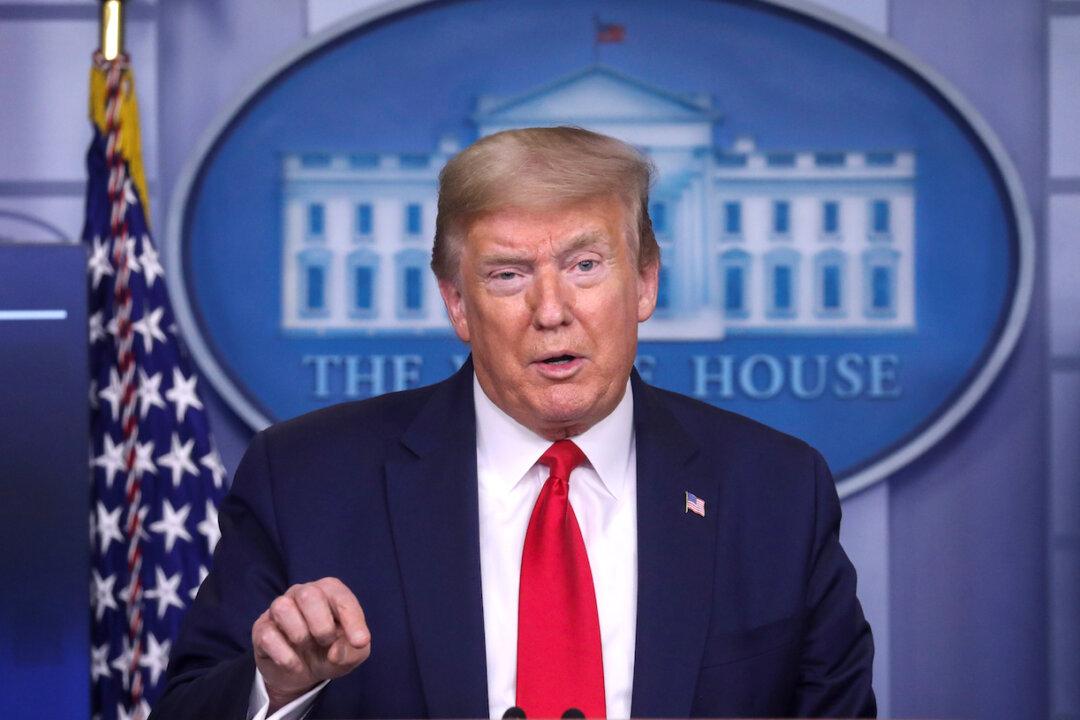President Donald Trump said Tuesday that his upcoming executive order suspending new immigration will apply to people seeking green cards while workers entering the United States on a temporary basis won’t be affected.
The ban on new green card issuances will last for 60 days, he said during a briefing on the CCP (Chinese Communist Party) virus pandemic.





